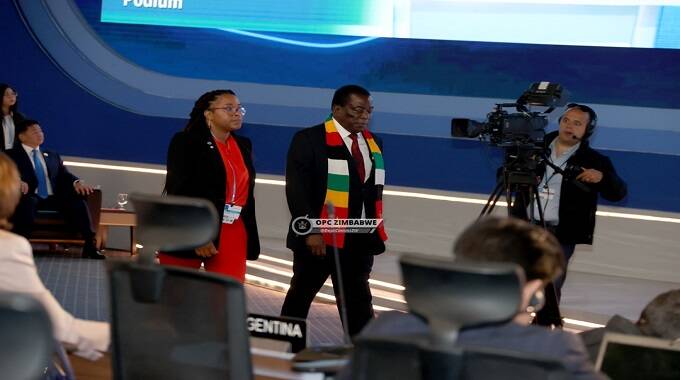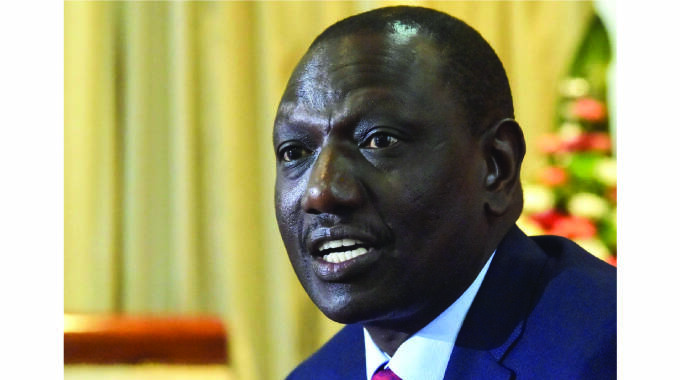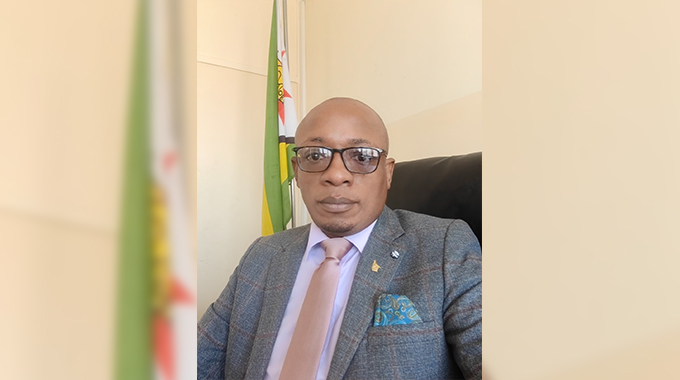Illegal sanctions derail climate change mitigation efforts: ED

Nduduzo Tshuma in Sharm El Sheikh, Egypt
PRESIDENT Mnangagwa has said the country’s efforts in mitigating climate change have been hampered by the illegal sanctions imposed on Zimbabwe by the West and its allies as he called for the immediate lifting of the embargo.
Speaking on the second day of the Sharm El Sheikh Implementation Summit here at the UN Climate Change Conference (COP27), President Mnangagwa said the country has implemented several measures to mitigate climate change effects.
He committed that Zimbabwe will see greenhouse gas emissions curbed to 44,7 million tonnes of carbon dioxide by 2030, adding that the country has also integrated gender issues in its Revised Nationally Determined Contributions.
The President said the agriculture sector, key to Zimbabwe’s economy, is facing a serious threat from climate change.
“My Government is implementing various programmes, including extensive dam construction projects towards climate change adaptation and mitigation for sustainable food and nutrition security. Further, Zimbabwe is expanding the production and use of renewable energy,” he said.
“Greater progress would have been made on our climate goals were it not for the albatross of illegal economic sanctions imposed on our country. We demand the immediate lifting of these unwarranted and punitive sanctions.”

The President said Zimbabwe is committed “to be a friend to all and an enemy to none”. He said the country is ready to play its part in addressing climate change and other global challenges.
President Mnangagwa said climate change continues to destroy people’s lives and livelihoods in every part of the world.
He said it is opportune that COP27 is being held on the African continent.
“Our voice must be heard, as too, should our demands and expectations. We must unite as a continent and speak with one voice,” said the President.
“There is a need for concrete actions. Those mostly responsible for the climate crisis must listen and prioritise climate finance to help prevent disasters and climate victims recover. Commitments we have made and continue to make can only make a difference when we act on them.”
The two-day summit, the first part of the high-level segment for Heads of State and Government, saw African leaders calling on the Global North to deliver on their commitments towards fighting the effects of climate change.
The President called on developing countries to use COP27 to act as a countermanding bloc of victims of climate change.
“We need to negotiate and vote in a block, through the Group of 77 plus China. Only then are we likely to carry the day. We can and must, act now to secure a healthy planet for the present and future generations,” he said.
On the opening day of the Implementation Summit, Central African Republic President Faustin Archange Touadera said Africa, whose contribution to greenhouse emissions is negligible, should not continue to pay for the crimes the continent hasn’t committed.
He said pursuant to their historical responsibility for climate deterioration, rich countries should help the poor countries to implement the National Voluntary Reduction Action Plans
Mozambican President Filipe Nyusi called on local and international partners in the public and private sectors to mobilise financial and technological resources to restore and conserve the mangroves and rich biodiversity in the world.

Filipe Nyusi
He said the transition to the use of clean energy must be gradual to reduce the negative impact on the economic growth of developing countries.
“So, we want to continue in the medium term, using our natural resources such as natural gas that is less polluting and generate finance for adaptation actions for climate change,” said President Nyusi.
Kenyan President William Ruto called on the World Bank, the International Monetary Fund and other multilateral lenders to extend pandemic-related debt relief to the worst-hit countries.
“It is time for multilateralism to reflect the voice of the farmers, represent the hopes of villagers, champion the aspirations of pastoralists, defend the rights of fisher folk, express the dreams of traders, respect the wishes of workers and indeed, protect the welfare of all peoples of the Global South,” he said.

President William Ruto
Yesterday, Botswana President Mokgweetsi Masisi called for investment in African research institutions for local solutions to the effects of climate change.
Meanwhile, President Mnangagwa returned home this morning.











Comments